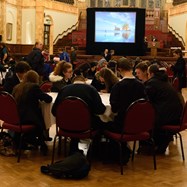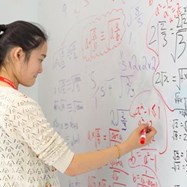Warwick 2+2
Many of the students on the University of Warwick’s 2+2 Social Studies and Health and Social Policy course left school at 16, perhaps not having previously considered attending a leading university and going on to a graduate job.
The 2+2 programme allows students without traditional qualifications to spend two years at a local further education college studying for a University of Warwick degree, before continuing to study at the university for a further two years. Introductory years at a further education college can help someone who has not been in formal education for a number of years, enabling them to adjust to studying again, away from the more formal academic environment of a research-intensive university.
The programme takes 85 entrants a year, who come with either access level or vocational level 3 qualifications, although some have no level 3 qualifications at all. These are mainly students who missed out on educational opportunities earlier in life, or who have faced barriers to continuing their studies.
Applicants take an entrance exam and are interviewed, which gives tutors a chance to evaluate their potential. Tutors at the participating colleges in Coventry, Solihull, North Warwickshire and Hinckley, Leamington Spa and Warwick will also have made a recommendation to the university.
Students study in the familiar college environment and begin with modules such as research methods, which prepare them for university.
There is also a significant investment in student support: during their college years students will have up to four times as many contact hours as conventional students at the university. Those on the 2+2 courses also make more use of the university’s central support services in areas such as finance and welfare.
After completing the two college years, students choose from interdisciplinary modules offered at the university, which they study with other ‘traditional’ students, as well as specialist modules for mature students offered in the Centre for Lifelong Learning.
Since it was set up more than 25 years ago, more than 2,000 local people have studied on the programme, many without any qualifications, and have gone on to further study or careers in areas such as social work, teaching, local government, the community and voluntary sectors.
-
Hamir Patel
hamir.patel@russellgroup.ac.uk
020 3816 1316
-
Hollie Chandler
Hollie.Chandler@russellgroup.ac.uk
020 3816 1307
 X
X


